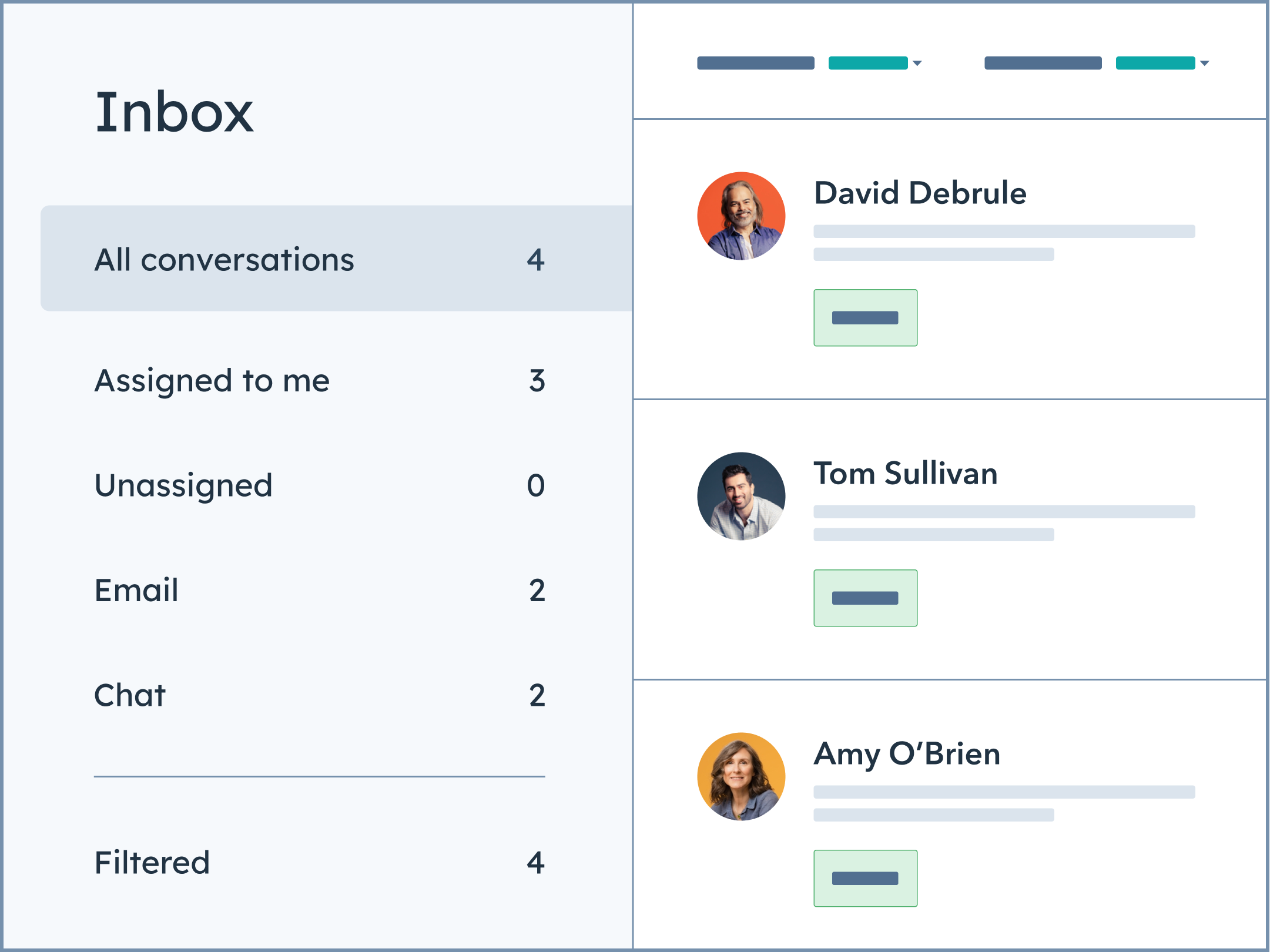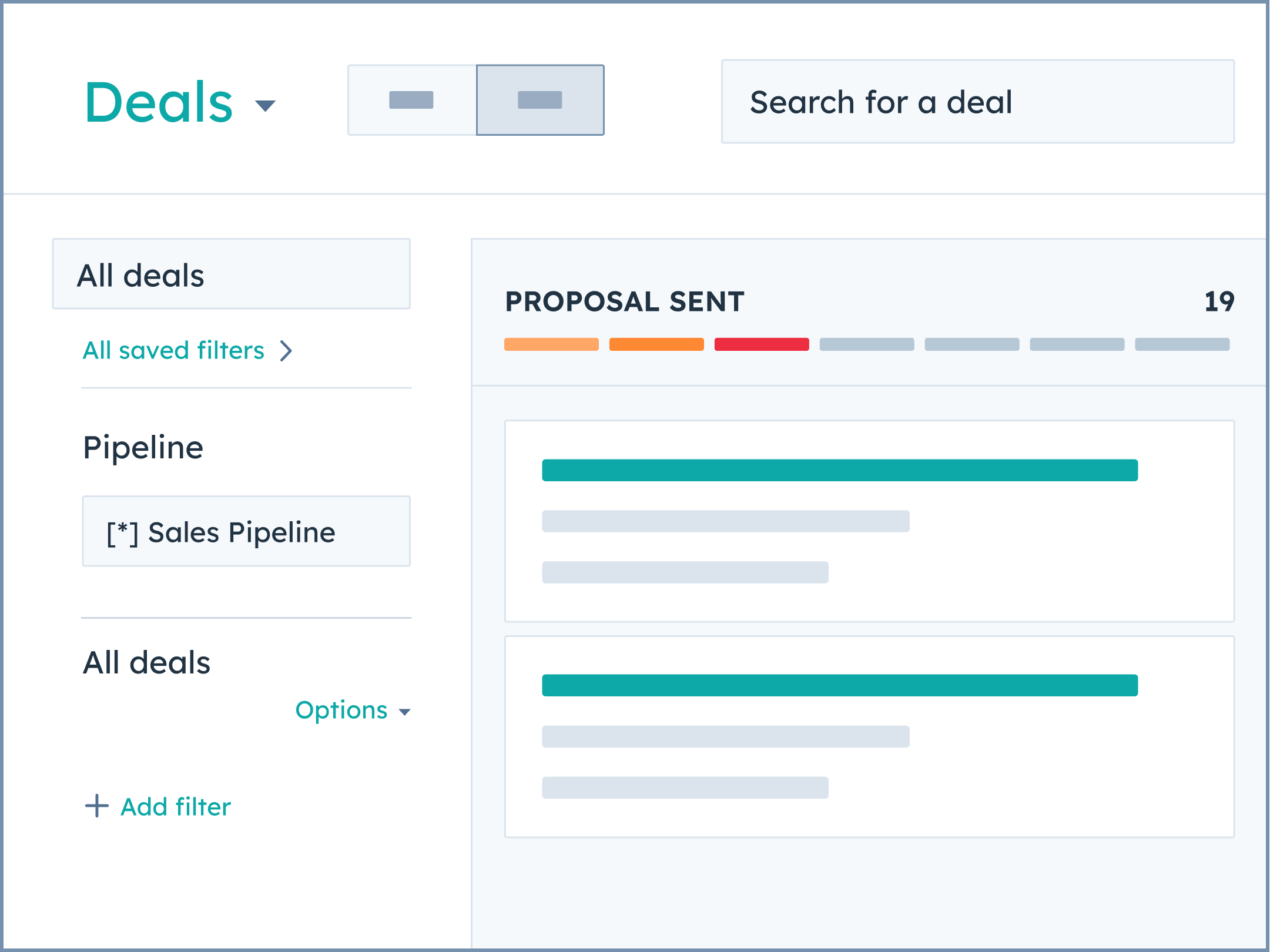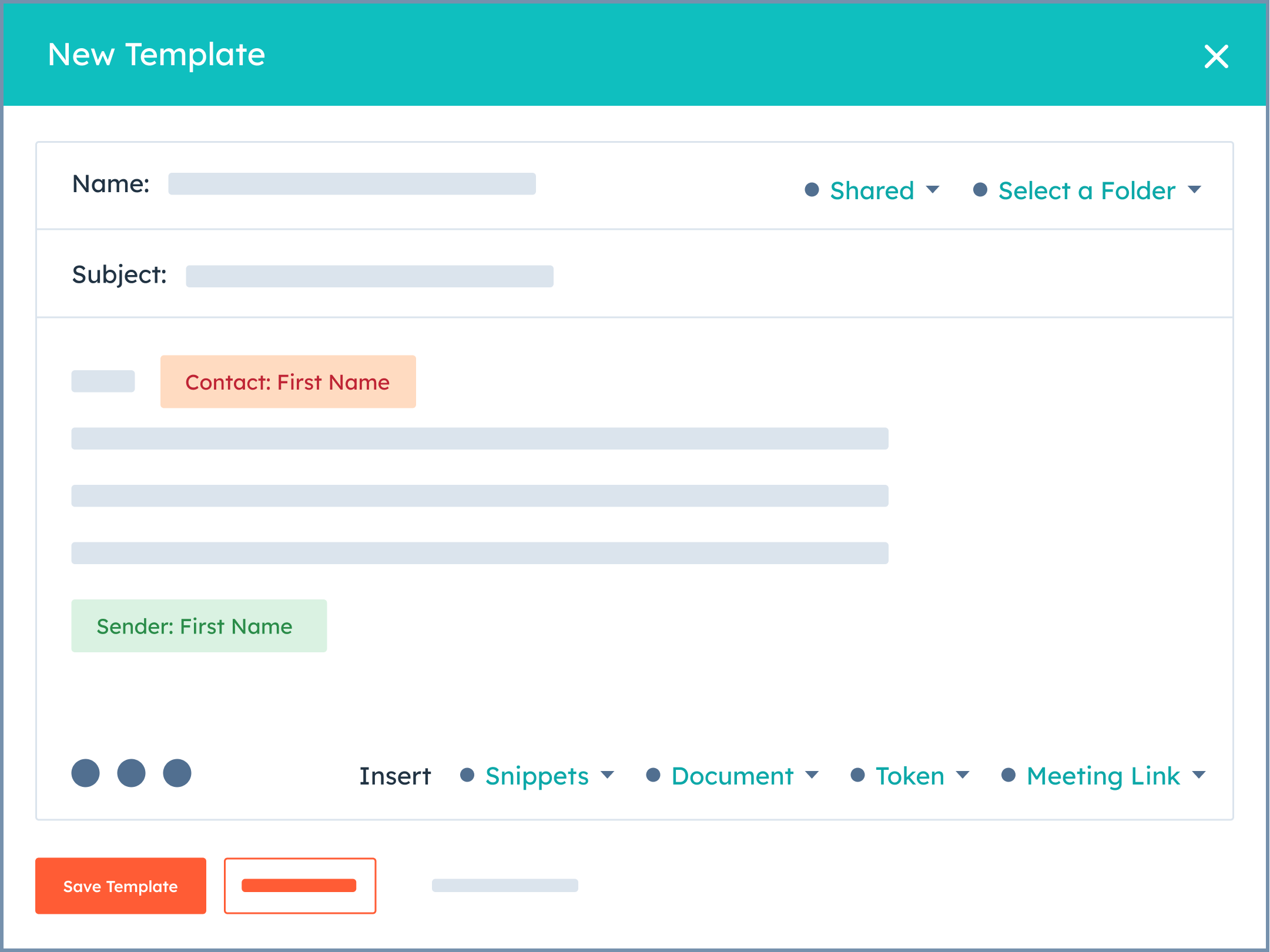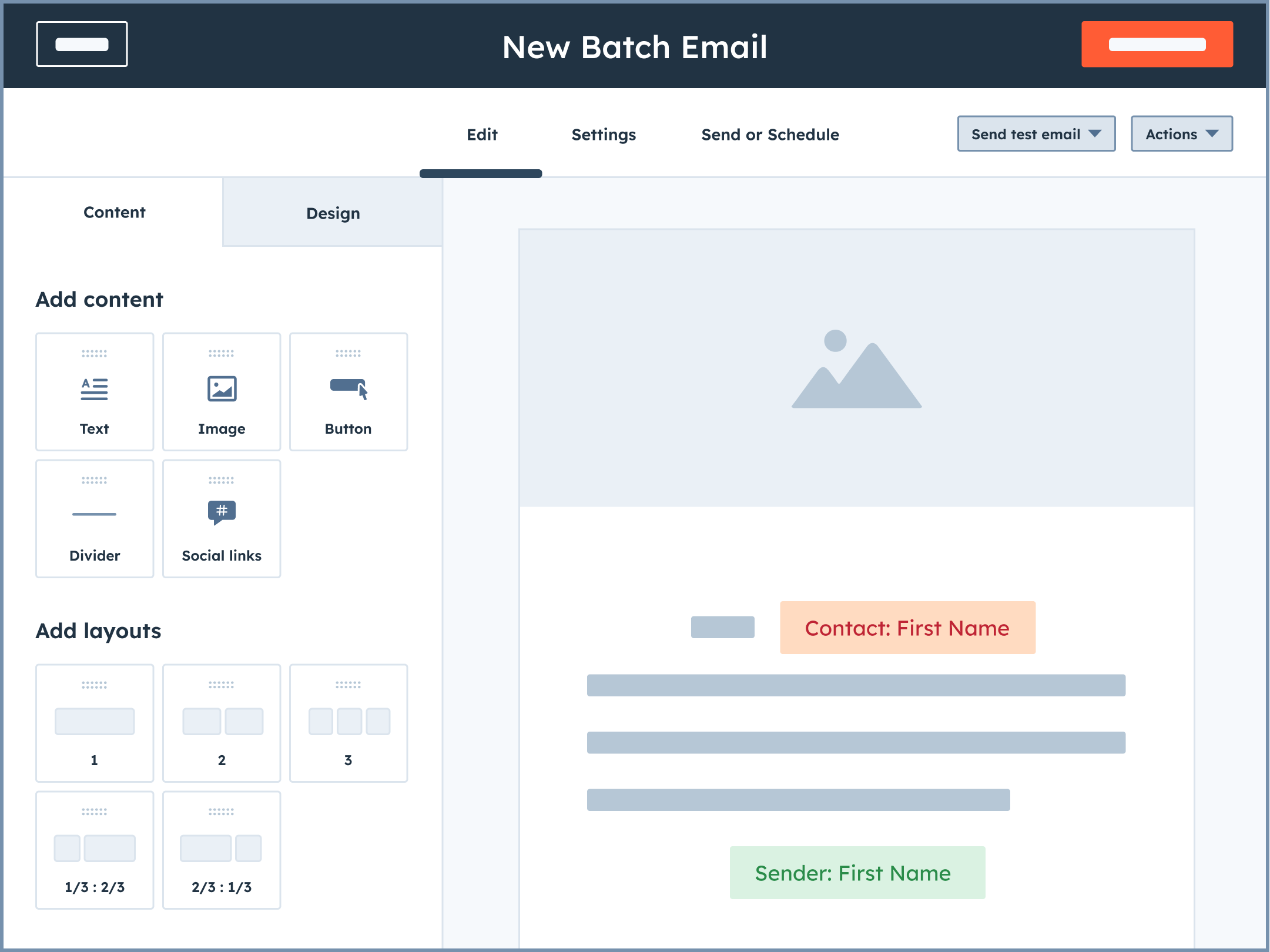- HubSpot CRM
- What is CRM?

Get started with HubSpot's free CRM or learn more about how customer relationship management can help companies of all sizes grow better.
Get started free Get a demo
-
Learn why customer relationship management is more important now than ever before
-
Find out how a CRM can help your whole team
-
Explore the benefits of HubSpot’s Smart CRM
-
What is customer relationship management?
CRM stands for customer relationship management. As its name suggests, CRM software is a system for managing customer relationships.
For many businesses, their most valuable and important asset is their customers. In the past, companies kept their contact information scattered across business cards, email records, and spreadsheets. But as businesses expand and change, having a central database for customer information becomes essential.
Your prospects and customers will feel the pain when your team isn’t on the same page. From their perspective, they have a relationship with one company, not a collection of different people and departments. Everyone on your team needs context about every customer’s needs, wants, and current state so they can pick up the conversation where it left off.
Having one central place to organize all lead and customer details makes it easy for your entire team to gain insight into your business and customer relationships.

-
Who should use a CRM?
Do you need better visibility into your sales team's process and productivity? Do you require a centralized database for lead and customer information? Do your customers often interact with multiple individuals or channels?
If you answered yes to one or more of the questions above, your business could likely benefit from a CRM system.
-
When is the right time to adopt a CRM?
In short, the answer for most companies is pretty simple. While you may be able to get by for a while without a CRM system, adopting one sooner is often better than waiting until you feel the pain of an ad hoc solution you’ve outgrown.
Jumping between the different places your data lives becomes cumbersome and slows your team down.
Adopting a CRM has never been easier, thanks to HubSpot's free edition of its Smart CRM. It allows teams like yours to give a CRM a test run without the need for long-term commitments or upfront investments. You can explore if a CRM is beneficial for your needs without any financial obligations or expiration dates.
-
The evolution of CRM
What driving forces will define CRM’s future? Well, that depends on who you ask. Many experts agree that businesses will adopt CRM systems or alternatives that deliver tangible business results.
At HubSpot, the future of CRM is something we think about a lot. From interacting with our customers, we've noticed common challenges they face with their CRM systems. Many CRMs are complex, demanding significant effort from sales teams without offering equal value in return. Also, traditional CRM platforms struggle to capture customer interactions across websites, social media, and other channels. As a result, it becomes difficult for businesses to create a seamless customer experience.
With these realities in mind, in 2014, HubSpot launched our CRM. Designed to work seamlessly with the entirety of HubSpot’s other products and features, we went a step further to make it 100% free for anyone to try and use. No storage limits or expiration dates.
Since then, we've expanded our customer platform by adding free features like live chat and meeting scheduling. Today, HubSpot's Smart CRM offers intuitive AI tools to boost team productivity and innovation.
-
How CRM fits into growth
With companies growing faster than ever and an abundance of new opportunities to engage with potential customers, it can be challenging to effectively track and monitor interactions with prospects. This problem is compounded when marketing and sales teams are overloaded with information and using different sales processes. As a result, leads can fall through the cracks and prospects may receive inconsistent or irrelevant information.
Having a CRM helps solve these “growing pains” by organizing contact, company, and sales opportunity information, as well as capturing and organizing interactions across various communication channels. Marketing and sales teams in scaling organizations can improve efficiency and eliminate unnecessary tasks.
Have questions? Give us a call and we'll walk you through it.
+1 857-829-5060If you’re interested in more about HubSpot's Smart CRM, these related resources may help.
- How to Design Your Sales Process in HubSpot Smart CRM Find out how to get the most out of your CRM and use deals to track your sales. Read the blog
- Manage your CRM database Understand the main components of HubSpot’s Smart CRM – objects, records and properties. Read the article
- Supercharge your work with HubSpot AI Embrace the future of productivity and unlock limitless innovation with easy-to-use AI tools. Get started with AI
Frequently Asked Questions
-
Customer relationship management (CRM) is a system or software that helps track information and interactions between your company and your customers. This system is accessed and edited by multiple people to improve the customer experience, automate parts of the sales cycle, and improve communication.
-
The price of CRMs varies and there's no one-size-fits-all answer. Here are a couple of important things to keep in mind:
- Many CRMs have per-user fees. For example, one user costs $50, two users cost $100, and so on.
- Additional data charges can come in different forms. Some CRMs charge per record, where you pay for each additional set of 1,000 (or 10,000, etc.) individuals in your database. Others charge based on the size of data storage. For instance, you might get 5 gigabytes of free storage and then pay for each additional gigabyte.
- Certain CRMs also charge for specific functionality. You could pay $50 per user per month for contact, company, and deal management, and an extra $50 for the "Enterprise" product that includes lead scoring and reporting.
-
A CRM system is used to store and track customer data and interactions. Some data might be entered manually, like when a customer gives you their email address, while other information is tracked automatically.
Different groups access the CRM within your organization for various reasons. Sales might look at the type of company or previous orders, while marketing might be more interested in the CTR of different marketing campaigns targeted toward the client.
-
A CRM automates many mundane tasks such as data entry, cross-department communication, and tracking customer interactions. Many CRMs are cloud-based, allowing you to access this information anywhere. They improve the customer experience and allow for better communication between departments.
Popular Features in HubSpot's Smart CRM
Explore other features available in HubSpot's CRM platform. Explore additional CRM features below.
- Free Live Chat Software Connect with your website visitors in real time to convert new leads, close more deals, and provide better customer support.
- Business Insights Automatically populate contact records with company details from our database of over 20 million businesses.
- Sales Pipeline Management Software Add deals with a single click, assign tasks, and track progress in your dashboards.
- Chatbot Builder Software Qualify leads, book meetings, provide customer support, and scale your one-to-one conversations.
- Team Email Connect your team email addresses to a universal inbox that makes collaboration more efficient.




